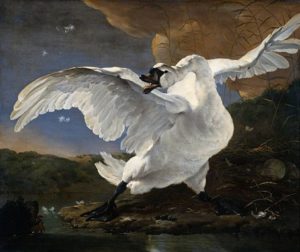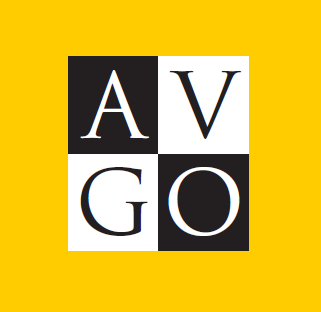Geen producten in je winkelmand.

- Dit event is voorbij.
10 lecture ONLINE Dutch history course THE TEN DAYS THAT MATTER
10/03/2023 @ 10:00 - 19/05/2023 @ 10:00
€9,50 The Threatened Swan by Jan Asselijn (circa 1640-1652). Later interpreted as an allegory about the threatened Dutch state.
The Threatened Swan by Jan Asselijn (circa 1640-1652). Later interpreted as an allegory about the threatened Dutch state.
This ONLINE Dutch history course The Ten Days That Matter tells the story of the ten most exciting days in Dutch history. This overview course is based on the ten days that are best described by the province of Zeeland’s motto luctor et emergo: moments when the Dutch state struggled, but eventually emerged as a strong state again. Key moments that were of the utmost importance for the continuation of the Netherlands as a sovereign state – from the proclamation of the Netherlands as an autonomous republic in 1588 until the trauma of Srebrenica in 1995. Periods of tranquility, challenges, war and stability are all part of this overview that will give you an elementary and essential understanding of Dutch national history. Historian Dionijs de Hoog passionately illuminates this Dutch history.
We start at the moment when the Dutch declare independence from their Habsburg rulers to become an autonomous republic in 1588, and discuss how friend and foe doubted the chances for success of this daring endeavor. Of course, the Disaster Year 1672 cannot be left out here. Why was 1672 the year when the people, government and country were reasonless, clueless and hopelessly lost? And how did they get back on their feet again?
We’ll cover the French Period from 1795 to 1813 extensively and see how the United Kingdom of the Netherlands was created, and why this state lasted no longer than sixteen years before the south of the country would break away and become Belgium. The north would then go it alone as the Kingdom of the Netherlands.
The 19th century is defined by revolutions that reflect the climate of crisis typical of that age. The country doesn’t make it through the turmoil of 1830 unscathed, but in 1848 and in 1917 it survives – albeit after some painful struggles – and remains intact as a state.
In the 20th century things get more difficult. After the first three decades a sharp economic downturn occurs, which the country seems to have overcome in the late 1930s. But when May 10th 1940 comes along, the Dutch state will have to face another period of grave misfortune.
After the war, the desire to return to the familiar pre-war situation is strong. When the Indonesians threaten the Dutch national self-image with their aspirations for autonomy, the Netherlands reacts mercilessly towards the people of Our East-Indies. In spite of a grim armed conflict the Tropic of Emerald is lost to independence… although not entirely – the Netherlands still “have” Dutch New-Guinea. In 1962 that last illusion of international grandeur is taken away, and the country has to reinvent its identity. From now on the Netherlands are no longer a force to be reckoned with in international relations, and the physical superiority that is lost will be replaced with a sense of moral superiority. The Netherlands reinvents itself and becomes a Guiding Country that “leads others in the right direction”.
A tranquil period follows, that is only challenged by the moment of the demise of the traditional Cold War enemy. In a Europe that is no longer stable, our Guiding Country intends to bring security to the muslims of Bosnia. In 1995 these good intentions would lead to participation in a UN-mandated mission that resulted in severe trauma near the Bosnian village of Srebrenica. The wounds still linger, but as we have done in the past, we’ll struggle and get back on our feet again.
Join this course and find out exactly which days are the days that matter in Dutch history!
During this course all of the important dates around these key moments will be covered extensively, thus providing insight into how time and again just one day in history can make all the difference. During the last lecture we will discuss what all this history means for us in 2023… and see if we can come up with an additional “day that matters”.
This course consists of ten lectures that are given on a weekly basis. The starting date will be determined after consultation with the students.
You can watch the first lecture of this ONLINE course free of charge. Please send us an e-mail to info@avgo.nl. We will then send you a password for access to the course through ZOOM. Only when you liked the first lecture and decide to follow the entire course, you will be asked to pay. We then charge $95,- for the rest of the course, the total to be paid before the second lecture.
A free digital syllabus is included.
